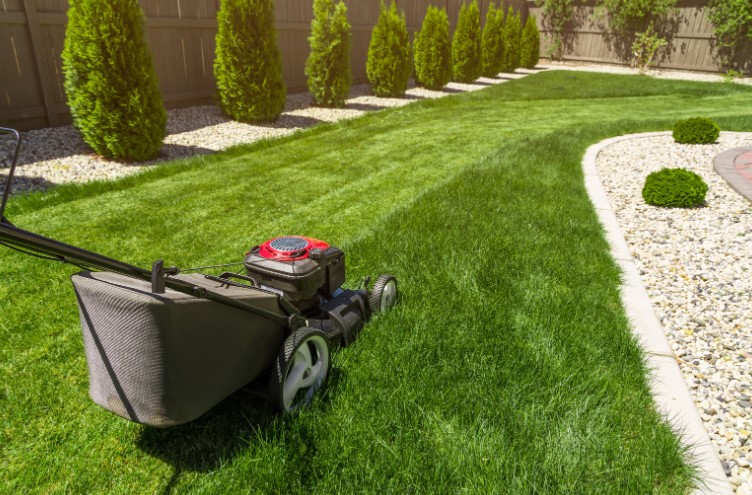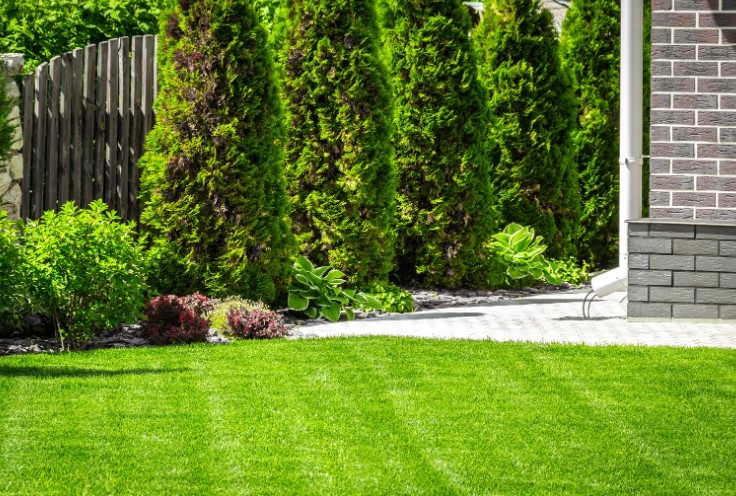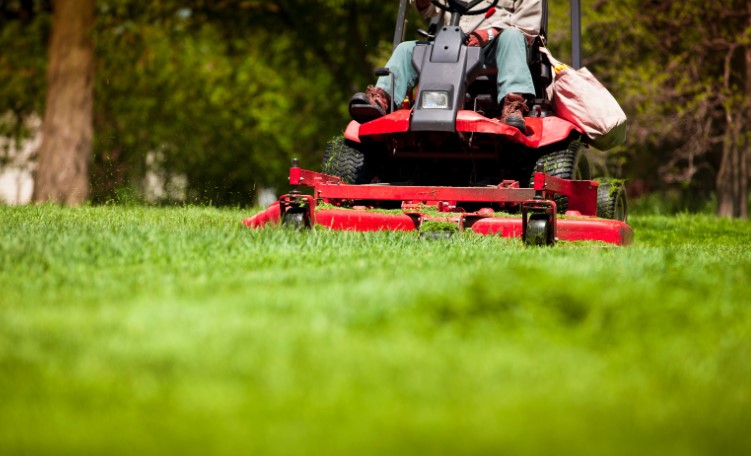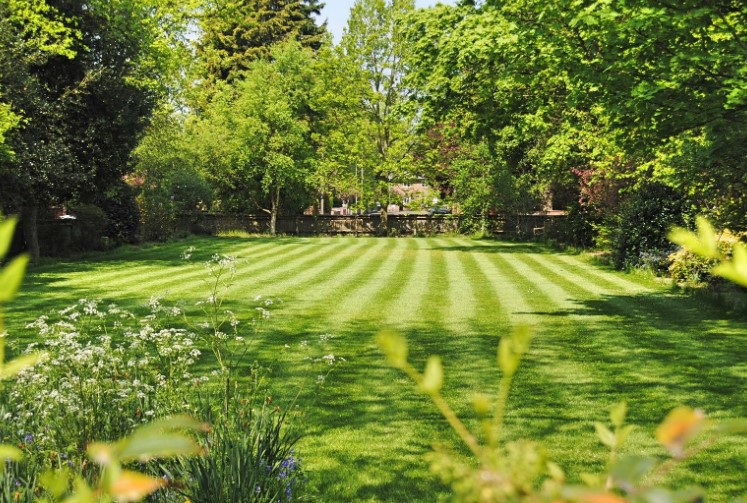- Can You Cut Wet Grass With a Petrol Mower?
- Why is Mowing Wet Grass with a Petrol Mower a Concern?
- Is It Safe to Cut Wet Grass with a Petrol Mower?
- How Does Wet Grass Impact Petrol Mower Performance?
- Best Practices for Mowing Wet Grass with a Petrol Mower
- Do Petrol Mowers Handle Wet Grass Better Than Electric Mowers?
- What to Do If You Must Cut Wet Grass with a Petrol Mower?
- Conclusion: Should You Use a Petrol Mower to Cut Wet Grass?
- FAQs on Using a Petrol Mower for Wet Grass
Can You Cut Wet Grass With a Petrol Mower?
Mowing the lawn is an essential part of maintaining a healthy garden, but what happens when rain makes the grass wet? A common question many homeowners ask is whether it’s safe to use a petrol mower on wet grass and how to cut damp grass safely.
While petrol mowers are known for their power and reliability, cutting wet grass can introduce challenges, both for the mower and the lawn.
In this guide on can you cut wet grass with a petrol mower, we’ll explore whether it’s a good idea, what precautions to take, and how to protect your mower.
Why is Mowing Wet Grass with a Petrol Mower a Concern?
Wet grass can pose several problems when mowing with any type of mower, but petrol mowers face specific challenges due to their engine power and mechanics.
Here’s why it can be a concern:
- Clumping: Wet grass tends to stick together, which can clog the mower deck and create uneven patches on the lawn. This makes the cutting process harder for a petrol mower and can lead to the blades getting stuck.
- Slippery Surfaces: Mowing wet grass increases the risk of slipping, especially if you’re using a petrol mower, which is typically heavier than electric models. This added weight makes it harder to maneuver in wet conditions, potentially leading to accidents.
- Damage to Grass Health: Cutting grass when it’s wet can harm your lawn. Wet grass is more prone to tearing than cutting cleanly, which can stress the lawn and increase the chances of diseases like fungal infections.
Understanding these issues helps clarify why mowing wet grass with a petrol mower isn’t always the best choice.

Is It Safe to Cut Wet Grass with a Petrol Mower?
While it’s not recommended to mow wet grass, there are situations when it may be necessary.
Here’s what you need to know about safety when using a petrol mower:
- Blade Safety: Wet grass can cause petrol mower blades to become dull more quickly. The grass clumps together, increasing resistance and making the engine work harder. Always inspect the blades after cutting wet grass and sharpen them regularly to avoid long-term damage.
- Engine Safety: Petrol mowers generate heat, and cutting wet grass adds extra load on the engine. If the mower’s air intake gets clogged with wet grass, it can overheat. To prevent this, clear away any clumps that form during mowing.
- Slipping Hazards: Petrol mowers are heavier, and when combined with wet ground, the risk of slipping and loss of control increases. Wearing appropriate footwear with good grip and taking extra care when handling the machine is crucial for safety.
While it’s possible to mow wet grass with a petrol mower, taking precautions is essential to avoid damaging both the mower and yourself.
How Does Wet Grass Impact Petrol Mower Performance?
Petrol mowers are powerful machines, but wet grass can hinder their performance in several ways:
- Blade Efficiency: Wet grass doesn’t stand upright as it does when dry, making it harder for the blades to cut cleanly. The result is a patchy lawn, and the blades may get clogged or dull faster due to the added moisture.
- Fuel Consumption: Mowing wet grass puts more strain on the engine, causing it to burn more fuel. You may notice that your petrol mower requires refueling more frequently when tackling wet grass.
- Rust and Corrosion: Prolonged exposure to moisture can lead to rusting of the metal parts of a petrol mower. After mowing wet grass, it’s important to thoroughly clean the machine to prevent corrosion, particularly on the blades and under the deck.
Understanding how wet grass affects performance will help you maintain your mower properly and prevent long-term damage.

Best Practices for Mowing Wet Grass with a Petrol Mower
If you must mow wet grass with a petrol mower, follow these best practices to minimize potential issues:
- Inspect the Grass: If the grass is excessively wet or waterlogged, it’s best to wait until it’s slightly drier. Mowing when the grass is just damp is more manageable and less harmful to the mower.
- Raise the Cutting Height: Increase the mower’s cutting height by knowing how to cut grass and when to mow to reduce the load on the engine and prevent clogging. This will also minimize the risk of tearing the grass instead of cutting it cleanly.
- Clean the Mower Regularly: After mowing, make sure to clean the blades and underside of the mower to remove any wet grass. This prevents rust and maintains the efficiency of the machine.
- Mow Slowly: Mow at a slower pace to give the petrol mower time to deal with the extra resistance from the wet grass. This can also reduce the risk of clumping and allow for a more even cut.
Following these best practices ensures that both your lawn and your petrol mower remain in good condition, even after cutting wet grass.
Do Petrol Mowers Handle Wet Grass Better Than Electric Mowers?
When comparing petrol mowers and electric mowers for cutting wet grass, there are a few key points to consider:
- Power and Performance: Petrol mowers generally have more power than electric ones, making them better suited for cutting wet grass. The additional power helps the blades cope with the increased resistance from damp grass.
- Weight: Petrol mowers are heavier than electric mowers, which can be both an advantage and a disadvantage. The extra weight can help cut through thicker wet grass, but it can also make maneuvering more difficult on slippery surfaces.
- Durability: Petrol mowers are generally more robust, but they require more maintenance after cutting wet grass to avoid damage from moisture. Electric mowers, while lighter, may struggle with the load that wet grass creates.
Both types of mowers have their pros and cons, but petrol mowers tend to perform better in wet conditions due to their power and durability.
What to Do If You Must Cut Wet Grass with a Petrol Mower?
If mowing wet grass is unavoidable, here are some practical tips to minimize damage:
- Clear Debris: Before mowing, remove any leaves, sticks, or debris that could get tangled in the mower. Wet grass can make it harder to spot obstacles, which can damage the blades or engine.
- Mow in Shorter Sessions: Take frequent breaks to clear out any clogs and let the mower cool down. This will prevent overheating and reduce stress on the engine.
- Maintain the Blades: After mowing, check the blades for any signs of dullness or damage. Sharpen the blades if necessary to ensure clean cuts on the next use.
By following these steps, you can mow wet grass with a petrol mower while minimizing potential harm to the machine and your lawn.
Conclusion: Should You Use a Petrol Mower to Cut Wet Grass?
While it’s possible to mow wet grass with a petrol mower, it’s generally not ideal due to the risks involved for both your lawn and the mower.
If you must do it, follow the best practices outlined in this guide to minimize damage. Regular maintenance and cautious mowing will keep your petrol mower running smoothly and your lawn in good health.

FAQs on Using a Petrol Mower for Wet Grass
Here are some common questions about using a petrol mower on wet grass
1. Can I use a petrol mower in the rain?
It’s not advisable to mow during active rain, as it increases the risk of slipping and damaging the mower. Wait until the rain stops and the grass is only damp.
2. Will mowing wet grass damage my petrol mower?
Over time, yes. Wet grass can cause clogs, dull blades, and moisture-related damage like rust. Regular maintenance is crucial to keeping your mower in good shape.
3. How should I clean my petrol mower after using it on wet grass?
Clean the mower immediately after use. Scrape off wet grass from the underside of the deck, wipe down the blades, and dry all metal parts to prevent rust.
4. Should I sharpen the blades after mowing wet grass?
Yes, sharpening the blades after mowing wet grass is a good idea to keep them performing at their best. Wet grass dulls the blades faster than dry grass.


0 Comments